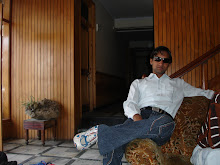Alain Ducasse at The Dorchester in London's tony Park Lane is the kind of pricey restaurant dealmakers go to when they want to shake hands on a really big one.
That's where Fox Filmed Entertainment Co-Chairman Jim Gianopulos, Fox STAR Studios India CEO Vijay Singh, and producer-director Vipul Shah met earlier this month before announcing to the media Fox Star Studio's first of a series of co-production and acquisition partnerships in Bollywood.
At about $25 million for two films over the next 18 months, it's small change for a Hollywood studio whose parent company made $28.7 billion in revenue last year.
But a small step for Rupert Murdoch's News Corp is a giant leap in the ongoing love affair between an embattled Hollywood where revenues are plateauing and a cash-rich Bollywood with a growing domestic market.
Part of the increased interest from Hollywood is because despite efforts to dub their films in Hindi, running a blitzkrieg marketing them, and even going big with the release (for instance Sony is releasing over 600 prints of the new Bond film, Quantum of Solace), foreign movie revenues have not grown.
As Siddharth Roy Kapur, CEO of UTV Motion Pictures, puts it, "They've realised they need to be a long-term player here and build relationships." So though Murdoch may have been the prime mover in the West's chalo India strategy, having bought Star TV in 1993 from Hong Kong billionaire Li Ka-Shing, he is not the only media mogul to look east.

Akshay Kumar (left) and Deepika Padukone in Chandni Chowk To China
American majors are not new to Indian television but Hollywood is just waking up to Bollywood's potential, having put down $100 million in it cumulatively so far.
Walt Disney, after several false starts, including one bitter fallout with Indian Premier League's current hero, Lalit Modi, back in the days when he was chairman of Modi Entertainment Network, is a strategic investor in UTV with a 32 per cent stake bought for $200 million.
Apart from that, it has a three-animation movie deal with Yash Raj Films, the first of which, Roadside Romeo, releases this month. Viacom, apart from its interests in television, has a joint venture with TV18 in the Indian Film Company (IFC), which last year raised $112 million at London Stock Exchange's Alternative Investment Market.
IFC is also in negotiations with CIT, a middle market lender that has done substantial deals in Hollywood, for a $150-million line of credit. That's not all. Warner Bros is waiting for the release of its first coproduction in India with Ramesh Sippy Entertainment and Orion Pictures, the extravagant Chandni Chowk to China, even as Sony Pictures Entertainment is recovering from the tanking of its first Hindi film, the $8-million Saawariya, and has announced a co-investment deal with Eros International.

Walt Disney has signed a three-animation movie deal with Yash Raj Films
And, oh yes, big shots from talent agencies such as the powerful CAA and the pedigreed William Morris have made several rounds of movie producer offices in Bandra and Andheri.
Add to that interest from a whole range of banks and hedge funds which are in the market for co-production deals, though less so after the global meltdown, and clearly everyone seems to want a piece of the India action.
Not because of Hollywood movie revenues in India certainly, which even in the best of times are not more than 3 per cent to 5 per cent of the total annual box-office revenue, compared to 88 per cent in a nation like Britain, but also because of the domestic market, which sells 3.7 billion tickets, compared to just 1.4 billion in the US.
The revenues currently from India may seem puny, but the studios and film funds are betting on an India of the future where ticket prices will be more than the current average of 20 cents (the US average is $6), where there will be more than 12,000 screens, and where there is huge potential of growth of the home video market (which currently contributes 8 per cent to the market, compared to over 40 per cent of the total revenue in the US).
As Sanford Panitch, president of the newly established Fox International Productions, puts it, "Hollywood studios will become the force for transparency in India." They will also, he believes, be able to raise the bar on scriptwriting and visual effects. Or as an agent at William Morris puts it, "Bollywood will make more westernised movies but in the Indian genre, culture and language."

Chris Rock (centre) in I Think I Love My Wife
Is it any wonder then that News Corp chairman Murdoch, Walt Disney chairman Bob Iger and Time Warner Chairman and CEO Richard Parsons have officially declared India to be the winner in the India vs China debate for Hollywood?
In 2005, Parsons, while speaking at a lunch with the American Chamber of Commerce in Hong Kong, called China "a very tough market for a media and entertainment company. It's hard to make long-term investments if you don't exactly know what the playing field is going to look like."
Globalisation is the order of the day in Hollywood. Disney, whose businesses range from movies to theme parks and resorts, made almost a quarter of its $35.5 billion revenues outside North America last year.
And only last month, Iger said, "the best way for Disney to grow in markets such as India, China and Russia is for those markets to have a sense of ownership". As for Murdoch, he has repeatedly pointed out the advantages of India's rule of law, despite it being an "imperfect democracy".
Source: http://indiatoday.digitaltoday.in
 New Delhi: Shah Rukh Khan is not the only villain of Farhan Akhtar's 'Don 2'. Nawab Shah, who has been doing small roles till now, will also be seen as a baddie in the film. Apparently every member of the crew including Shah Rukh and Farhan Akhtar has prises for Nawab Shah's hard work.
New Delhi: Shah Rukh Khan is not the only villain of Farhan Akhtar's 'Don 2'. Nawab Shah, who has been doing small roles till now, will also be seen as a baddie in the film. Apparently every member of the crew including Shah Rukh and Farhan Akhtar has prises for Nawab Shah's hard work.












